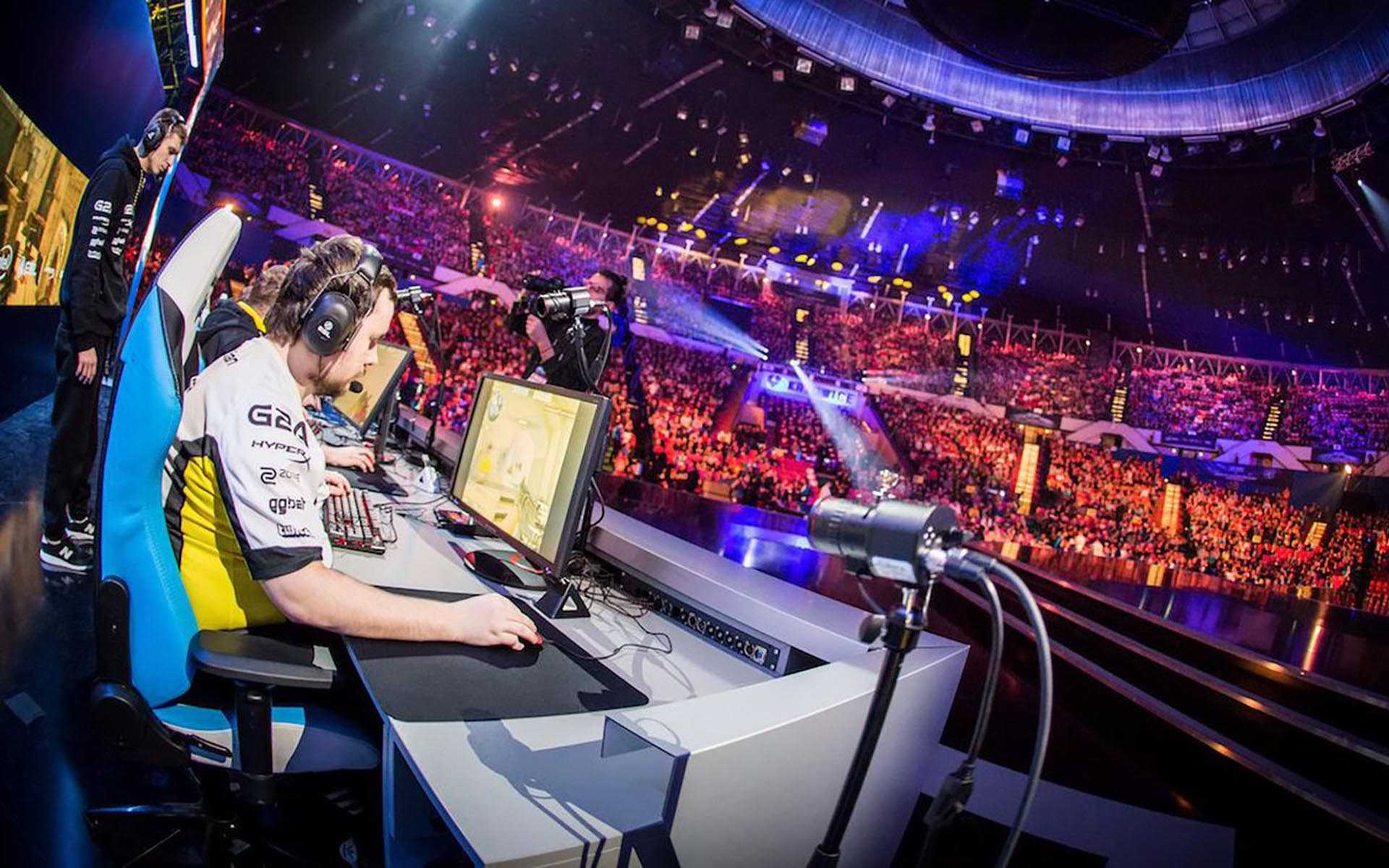Introduction:
When it comes to competitive gaming, Counter-Strike: Global Offensive (CS:GO) has become one of the most popular first-person shooter games in the world. With its intense gameplay and complex strategies, CS:GO tournaments attract millions of players from around the globe, all competing for glory and prize money. However, winning a CS:GO tournament is no easy feat. It requires a combination of skill, strategy, and teamwork that can take years to master.
One key aspect of winning in CS:GO tournaments is having a deep understanding of the game’s maps. Map knowledge allows players to anticipate their opponents’ movements and plan their own strategies accordingly. Additionally, understanding each map’s unique features such as chokepoints and bomb sites can give teams an edge over their opponents.
Another crucial factor in winning CS:GO tournaments is team coordination. Effective communication between teammates can make all the difference when executing strategies or responding to enemy attacks. Players must also be able to trust each other’s abilities and work together seamlessly towards a common goal.
In this classic essay on “Winning Strategies for CS:GO Tournaments”, we will explore these two critical aspects of competitive gameplay – map knowledge and team coordination – in depth. Through careful analysis and practical examples, we will provide valuable insights into how players can improve their chances of success in high-stakes competitions.
Map Knowledge:
One critical aspect that can make or break a team’s performance in Counter-Strike: Global Offensive (CS:GO) tournaments is map knowledge. In CS:GO, each map has unique characteristics, such as chokepoints and angles, that can be leveraged to gain an advantage over the opposing team. A team that has extensive knowledge of the maps they are playing on will have a significant edge over their opponents.
Players with good map knowledge know where to position themselves and how to move around the map effectively. They also understand the timings of different routes and know when and where to expect enemy players. This information allows them to make better decisions about when to push or fall back, when to use grenades, and when to hold positions. Additionally, players with excellent map knowledge can more easily predict what strategies their opponents may use based on their positions.
Map knowledge is particularly important for in-game leaders (IGLs), who are responsible for making strategic decisions during matches. IGLs need to have a deep understanding of each map’s layout so they can call plays that take advantage of their team’s strengths while exploiting their opponents’ weaknesses. They must also be aware of how their opponents play on specific maps so they can adjust their strategies accordingly.
Teams with superior map knowledge often have set plays that take advantage of specific parts of the maps they are playing on. For example, some teams may have strategies tailored for holding specific bomb sites or executing coordinated pushes through certain areas of the map. These plays require precise timing and positioning from all members of the team, which is only possible if everyone understands the nuances of each map.
Having strong map knowledge is essential for success in CS:GO tournaments. It allows players and teams to make informed decisions about positioning, timing, and strategy while also giving them an edge over less knowledgeable opponents. Teams that invest time into developing this skill will undoubtedly see improvements in their performances at tournaments.
Team Coordination:
In the high-stakes world of CS:GO tournaments, one key factor that can make or break a team’s chances of success is their coordination. When it comes to competitive play, teamwork and communication are essential to achieving victory. Without proper coordination, even the most skilled players can struggle to overcome their opponents. As such, developing effective strategies for team coordination is crucial for any CS:GO team looking to succeed in the tournament scene.
At its core, effective coordination in CS:GO revolves around clear and concise communication between teammates. This means establishing a set of callouts and commands that everyone on the team understands and can quickly respond to. In addition, each player must be aware of their role within the team and understand how they fit into the overall strategy. This requires a high level of trust between teammates as well as a willingness to adapt and adjust on the fly.
Another key aspect of team coordination in CS:GO is learning how to read your opponents’ movements and anticipate their actions. This requires a deep understanding of map layouts, game mechanics, and individual player tendencies. By analyzing enemy movements and predicting their next moves, teams can gain an advantage over their opponents by setting up ambushes or flanking maneuvers.
Of course, all this talk about communication and strategy means nothing if your team lacks the necessary skills to execute on these plans. As such, practicing together as a team is crucial for developing not only individual skill but also teamwork abilities. Through consistent practice sessions focused on specific strategies or scenarios, teams can build up muscle memory for coordinated movements while also identifying weaknesses that need improvement.
Effective team coordination is an essential component of winning strategies in CS:GO tournaments. It requires clear communication among teammates along with an understanding of both individual roles within the larger strategy as well as enemy movements and tactics. By practicing together with focused goals in mind, teams can develop these skills over time and increase their chances of success in the competitive scene.
Conclusion:
In conclusion, the key to success in CS:GO tournaments lies in mastering map knowledge and team coordination. Map knowledge is crucial for players to know the ins and outs of each map, including chokepoints, bomb sites, and common spots for enemy players. With this understanding, players can develop winning strategies that take advantage of their opponents’ weaknesses.
Team coordination is another critical factor that can make or break a team’s chance of winning. Effective communication among team members is essential to ensure that everyone is on the same page during gameplay. Players should learn how to communicate effectively with their teammates by sharing information about enemy locations, providing support when needed, and making quick decisions during intense situations.
Moreover, teamwork goes beyond communication skills; it also involves understanding each player’s role within the team and working together towards a common goal. Every player brings unique strengths to the table that can be leveraged to create winning strategies. Therefore, it’s crucial for teams to recognize individual strengths and use them effectively during gameplay.
In summary, mastering map knowledge and team coordination are two winning strategies for CS:GO tournaments. With these skills in hand, players can develop effective tactics that will give them an edge over their opponents. By understanding the importance of these factors and working together as a cohesive unit, teams can increase their chances of achieving glory in this highly competitive game. Learn more.




